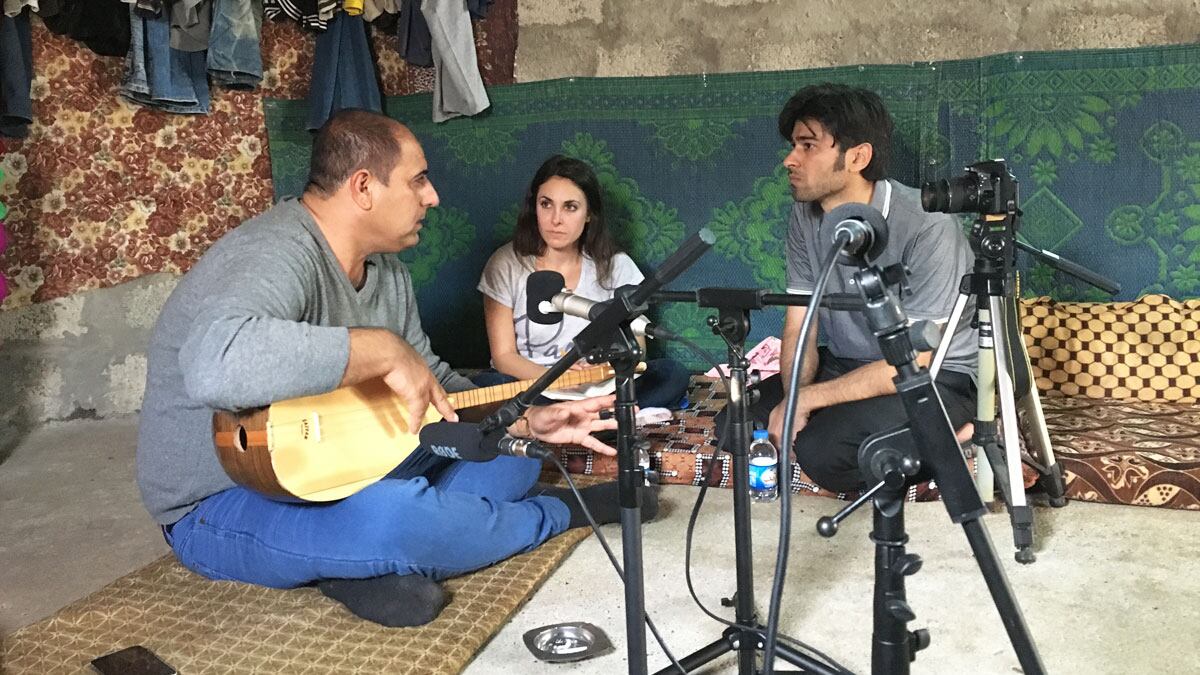In 2009, Sasha Ingber was an aspiring journalist trying to find a steady job in Portland.
Seven years later, she landed in the Kurdistan region of Iraq as millions of refugees were arriving from cities captured by ISIS.
Ingber, 32, is co-founder of Music in Exile, a nonprofit that records the songs and stories of people who have been displaced by war. A former WW intern, she now works in Washington, D.C., and travels the globe to record music. Ingber and Music In Exile co-founder Alex Ebsary talked about their project, which can be heard on musicinexile.org.
WW: Why did you choose to start this project in Kurdistan?
Sasha Ingber: The population was increased by a third with the influx of refugees. I find myself so fascinated by this large exodus and what is lost in the movement—what they left behind and the vastly rich cultures that they now have to carry with them to another place.
What was it like hearing the stories of these displaced musicians?
Ingber: In the refugee camps, they were very welcoming and incredibly generous—wanting to cook us lunch and then cook us dinner and show us more and more. We never had enough time with them. The hardest part was really listening to what they had gone through. At least one of us was crying every day.
Alex Ebsary: One of the unexpected positive things was showing up at a refugee camp, and there are nine people waiting already at 9 o'clock in the morning to get recorded. They've had their lives totally shattered. And they lived lives that you and I would recognize as being normal. They had schools, they had houses that look similar to yours and mine, they had cars, things that feel very Western. And suddenly, there's this death cult that runs through their village, and they had to leave, and now they live in a tent.
You've spoken about how music is really important for many Middle Eastern people, especially for the Yazidis, an ethno-religious cultural group in Northern Iraq. What does that mean for your work?
Ebsary: When ISIS took various parts of Sinjar [a city in Northern Iraq home to many Yazidi people], they would go around and smash musical instruments, because they knew that was how the Yazidis communicate their oral history. ISIS has been quite explicit in the fact they want to exterminate the Yazidi religion and destroy their culture. We met a Yazidi musician who told us: "They would burn our books. So we stopped writing things down, and now we remember our history through song." So he had memorized 250 songs, as his contribution to Yazidi culture.
Where will you go next?
Ingber: Sadly, there is a tremendous wealth of places that we could go, because so many people have been displaced. There are Haitians who have relocated to Brazil. We thought it'd be fascinating to talk to people who left New Orleans after Hurricane Katrina, because New Orleans has such a musical tradition.
